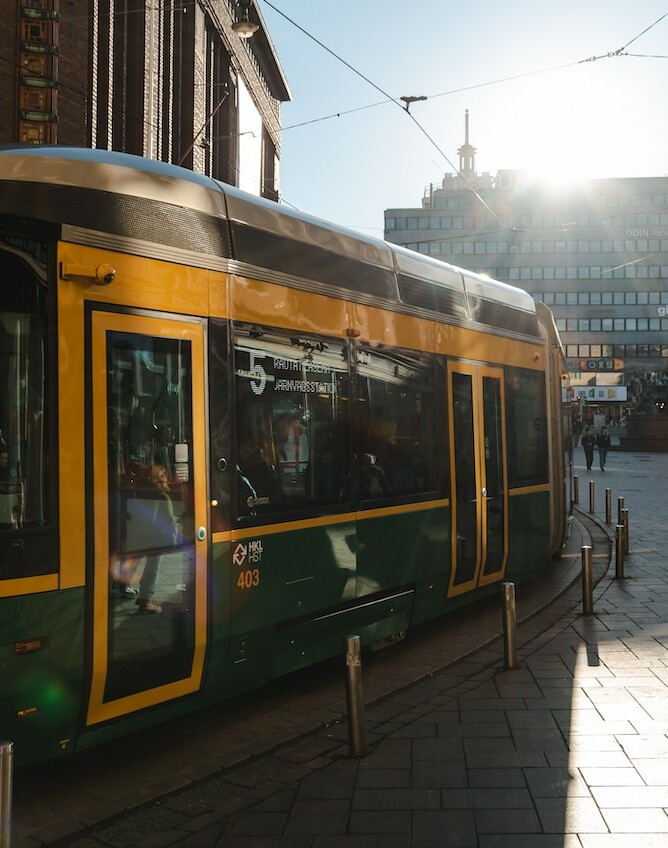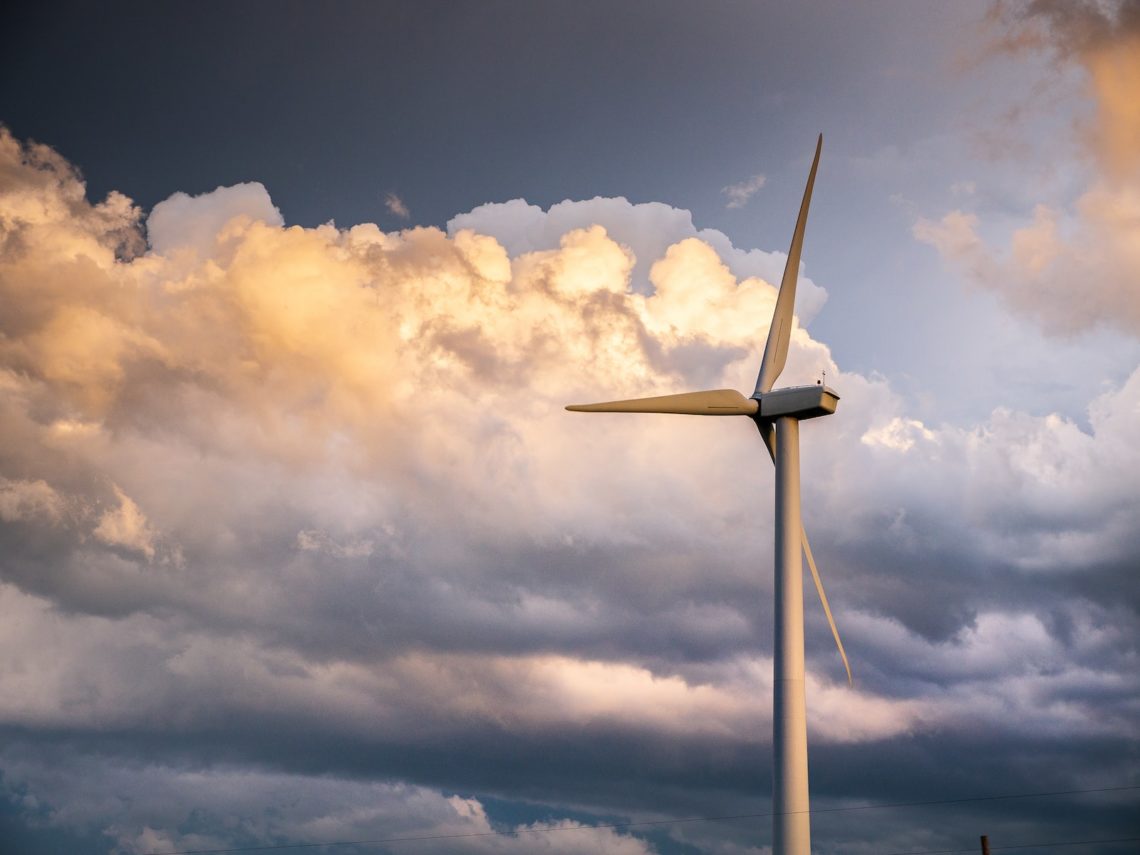The strategic objective of urban transport is to lead the way in developing a carbon neutral infrastructure and transport service sector. This ambitious vision is already reflected in concrete procurement and construction projects.
Metropolitan Area Transport Ltd (Kaupunkiliikenne, formerly HKL), owned by the City of Helsinki, builds public transport infrastructure, such as express tramways and depots, in the Helsinki metropolitan area. The sustainability work of the beloved brand is based on social and societal impact.
“Urban transport has played an important role in the daily lives of city residents for over 100 years, and we have had entire families working for us for generations,” says Karoliina Rajakallio, Director of Finance and Strategy at Metropolitan Area Transport Ltd. For a long time, sustainability work has been about reducing transport emissions. “Already since 2012, all metro and trams have been running on zero-emission electricity.”
The carbon neutrality programme also covers the carbon footprint of construction
The focus of sustainability work changed when decisions were made on new tram lines in the Helsinki Metropolitan Area. “Track construction experienced a renaissance, and we could not close our eyes to the carbon peak caused by massive construction,” says Maija Sarpo, Head of Sustainability at Metropolitan Area Transport.
This is why carbon neutrality was chosen as one of the priorities of the new strategy. At the same time, the company set a carbon neutrality target (2030) in line with Helsinki, Espoo and Vantaa, and a stricter zero emissions target for direct emissions and energy consumption (2025). Laura Ylimäki, Business Manager at Gaia, that acted as a consultant for the study, said the choices were a clear statement and message from the company.
“Urban transport decided to exceed expectations and include Scope 3 emissions, which cover indirect emissions from activities such as procurement and construction materials. This reflects a desire to be a driving force and a driver of change in the sector.”
“Our investment budget covers a quarter of the city’s total investment budget, so reducing material emissions has a big impact on the city’s carbon footprint,” Rajakallio says.
Change management has been surprisingly easy
Implementing change at the strategic level has been surprisingly painless for the organisation. From the outset, the ambitious goals have been supported by the CEO, the Board, the management team and the staff.
“In fact, our experts have only been waiting to tighten up. Many of them want to do impactful work with us that is in line with their values,” says Rajakallio. “Our construction partners have also been ready for the change and have done their own development work for low-carbon construction.”
To support the implementation of the vision, an emissions calculation and forecast was carried out, says Rajakallio: “It gave everyone in our organisation a clear picture of where we need to focus and where we will be in 10 years if we do nothing.
It was a good solution to set out the objectives clearly at an early stage, rather than having a debate about them. “We could immediately start thinking about how to achieve the objectives,” says Sarpo.
The carbon neutrality programme and roadmap built during the work, the contours of which were explored in the workshops, also provided concrete input. These involved a wide range of experts, from the management team to the procurement team, project managers and stakeholders. Everyone had a voice.
“People had the chance to tell us what they thought would be the most effective, yet realistic, means. It engaged staff well,” says Sarpo. The atmosphere at the workshops was one of fearlessness and eagerness to learn new things.
Carbon neutrality target drives investment
The carbon neutrality programme and roadmap are already visible in the Urban Transport construction projects and in the procurement of tram and metro systems. The Kalasatama to Pasila project has served as an important pilot.
“We used it as a test platform where we could develop and test many new materials and processes,” says Sarpo. The Ruskeasuo depot project, for its part, has successfully promoted both BREEAM certification and the use of low-emission concrete. In the recently launched Koskela depot project, emission reductions were already set as a target during the procurement phase of the alliance: “For the first time, carbon emissions will be included in the alliance’s success indicators and reward mechanisms.”
The latest step forward is the climate targets for investment in urban transport, established in spring 2023. These are new for the whole industry. Metropolitan Area Transport wanted to create its own climate criteria for its investments, rather than just waiting for donor requirements.
According to Rajakallio, Metropolitan Area Transport is interested in creating ever closer partnerships with the supply chain in order to bring new innovations to the sector. “Industry has a great capacity to develop things, while we have projects big enough. Together, we can ensure the availability of low-emission materials and the recyclability of building components.”
The consultant is needed to bring his or her experience to the table
According to Rajakallio, the cooperation between Metropolitan Area Transport and Gaia is culminated in Laura Ylimäki as a consultant: “We don’t want to pay for a highly paid secretary who just feeds us our own ideas in a repackaged form. From Laura, we get top expertise, knowledge and insight, which comes from a broad client base and network.”
“We have a good relationship of trust, and that’s why the consultant has the courage to say the difficult things out loud and question our views,” says Sarpo.
The communication style must also be credible. “I particularly appreciate that things are presented so clearly that it is easy to communicate them to the field,” Rajakallio adds.
Metropolitan Area Transport Ltd enables sustainable growth in the Helsinki Metropolitan Area by building the city of the future and keeping it moving. The company is responsible for building public transport infrastructure and operating and maintaining metro trains and trams. Metropolitan Area Transport organises the city bicycle service and operates the Suomenlinna ferries through its subsidiary.
Goals
A pioneer in carbon neutrality
Our Role
An emissions inventory for the whole organisation, a carbon neutrality programme and roadmap, and climate criteria for investments
Results
Emissions calculation, development of carbon neutrality programme and roadmap, sparring with the management team, workshops for representatives of different departments in the organisation, creation of climate criteria for investments, assistance in procurement.
Renewable energy, bioeconomy, energy markets, energy economy, organisational and leadership development
laura.ylimaki@gaia.fi
+358 50 460 0351






